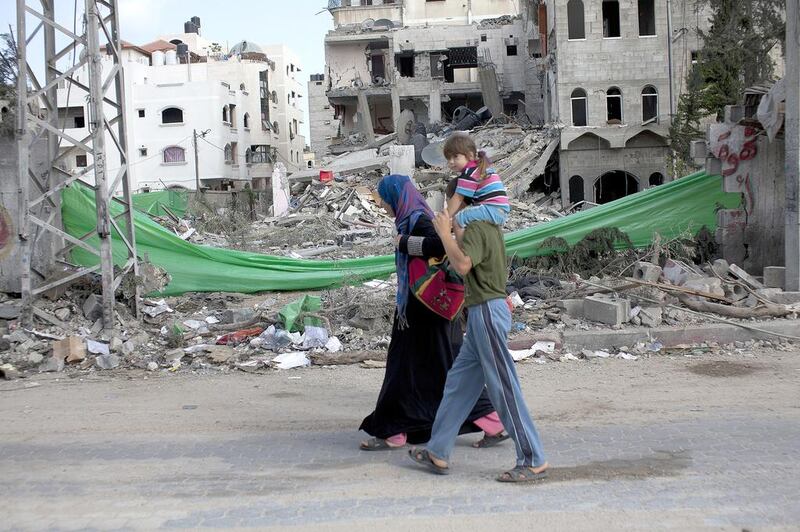Certain elements of the international media’s coverage of Israel’s onslaught against Gaza remind me of those carnival mirrors where one’s reflection is a distortion of reality.
The story, as presented on these outlets, is one of masked militants, rockets fired from underneath trees and angry demonstrators. This is the Gaza that Israel would prefer the world to see: a violent, frightening, unpleasant place that is impossible to understand or sympathise with.
In reality, two Gazas exist: the one these media outlets present, the other on the ground and presented on social media.
The face of Gaza that we see on social media is one of horrific photos and harrowing reports from those experiencing the atrocities first-hand. Charred, mutilated corpses, inconsolable loved ones, inundated hospitals, destroyed homes – these images are conspicuously absent from many mainstream outlets.
Instead, we are offered a sanitised war, where civilians are statistics, bombings resemble a video game and human rights violations are denied or justified.
This fundamental flaw in coverage is not limited to the current crisis or even to Gaza. It is a hallmark of reporting the Israeli-Palestinian conflict.
Arguably the biggest problem is that the vast majority of foreign correspondents are based in Israel. “The best way to understand a place is to live there,” BBC Middle East editor Jeremy Bowen has said, quite rightly, but huge tracts of the media have very little understanding of Palestine or its people.
Israel’s PR machine is also far better funded and organised than that of Hamas or the Palestinian Authority. As a result, Israel has far too much influence over the amount and nature of coverage.
Its narrative remains dominant. Its claims are often unchallenged and its people are humanised in a way that Palestinians are not.
This was exemplified by an interviewer for a global broadcaster who replied to my highlighting of Palestinian civilians suffering with: “But Israel says it doesn’t target civilians.” The staggering inference of this statement is that if Israel says so, then it must be so.
The status quo also means that when there is a flare-up, it is woefully devoid of context. To audiences viewing from afar, it seems that Palestinian violence comes out of nowhere, for no other reason than to threaten a vulnerable, peace-loving neighbour. From that distorted starting point, whatever Israel does is necessary and justifiable in self-defence.
The result is headlines such as “Israel under renewed Hamas attack,” courtesy of the BBC, which subsequently changed the headline after an outcry. Another global broadcaster began interviewing me with the question: “Why has Hamas chosen a full-blown confrontation with Israel?” That interviewer was effectively saying that Palestinians seem to be inherently and inexplicably violent.
It is as if Israel’s siege and regular attacks on Gaza are a fiction, as if its occupation and colonisation of the West Bank are irrelevant. The violation of Palestinian rights is so routine that it is not deemed newsworthy by many.
Most of the media interviews I have undertaken and watched since the Gaza onslaught began seem determined to focus solely on Palestinian rocket-fire. The wider picture – and the fact that these rockets are a product of the conflict, not its cause – have to be forced into the public domain as there is no appetite to discuss them.
Rocket-fire from Gaza is morally wrong because it is indiscriminate and targets civilians. It is also strategically ineffective as it does no real harm to Israel, while resulting in disproportionate Palestinian suffering.
However, militants have long realised that unless they fire rockets, Gaza barely exists to the outside world. The same is true of the West Bank, which suddenly made headlines when three Israeli teenagers were abducted and killed last month.
Some of the international media has, inadvertently or otherwise, fostered an impression that there is little to report about Palestinians unless they do something to Israelis.
This inevitably leads to skewed coverage and the focus largely on Israel’s narrative of events. And that is an injustice to Palestinians, who continue to be seen through carnival mirrors.
Sharif Nashashibi is a journalist and analyst on Arab affairs





